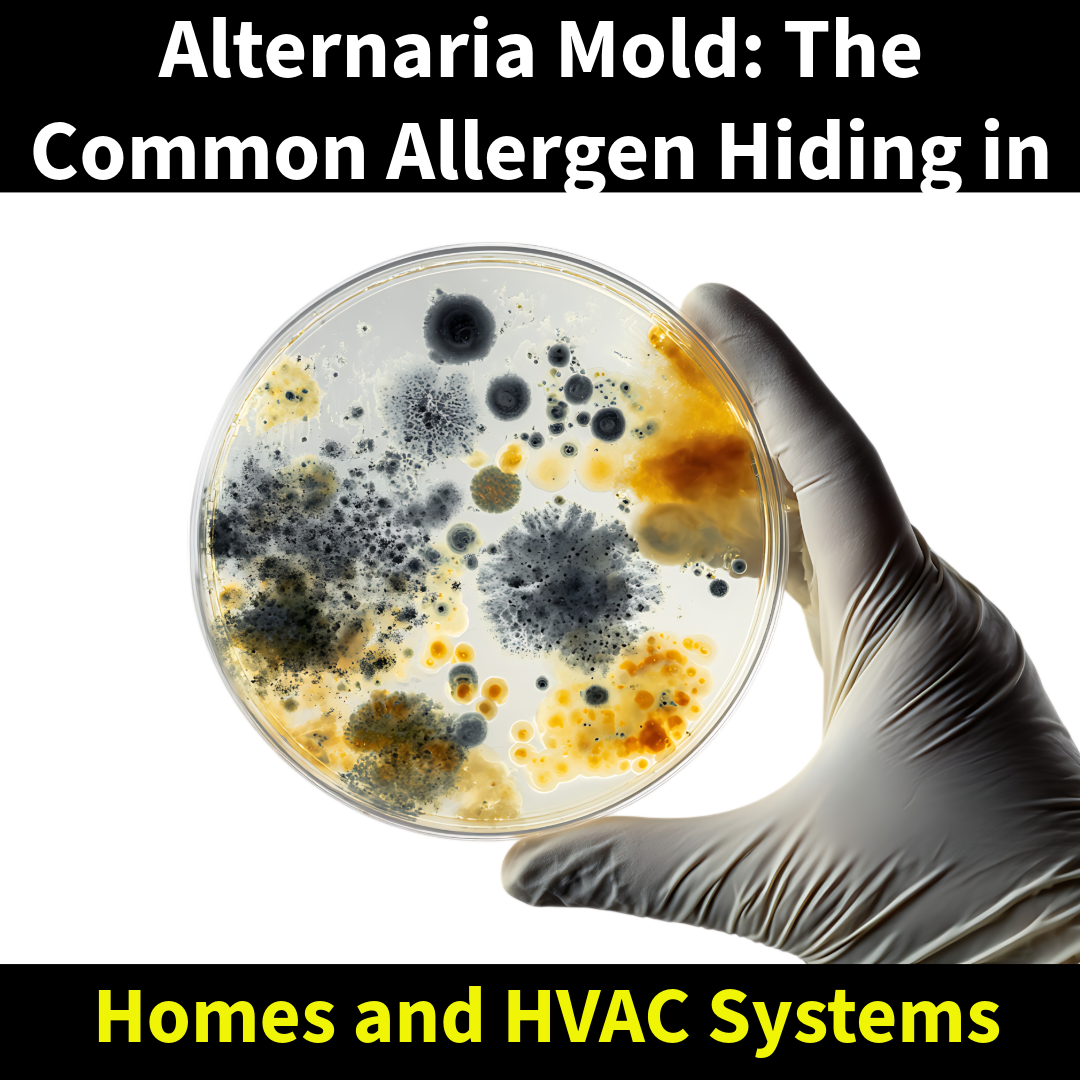Alternaria (pronounced al-ter-NAIR-ee-uh) is one of the most common molds found in both indoor and outdoor environments. Often seen as dark green or brown spots, this mold thrives in moisture-rich areas — especially where air movement and humidity collide. While it’s usually associated with outdoor plants, it can easily enter your home through windows, HVAC systems, and even your clothing.
Where Alternaria Grows Indoors
Alternaria mold prefers damp surfaces and can grow almost anywhere moisture lingers. Common indoor locations include bathrooms, window sills, basements, and around air conditioning units or dehumidifiers.
In homes with older HVAC systems or poor ventilation, Alternaria spores can collect inside ducts, spreading through the air every time the system runs. This makes it one of the most frequently detected molds during indoor air quality testing.
Health Effects of Alternaria Exposure
Alternaria is a significant allergen known to trigger respiratory symptoms similar to seasonal allergies. Individuals exposed to it may experience:
- Sneezing, runny nose, and itchy eyes
- Coughing or throat irritation
- Asthma flare-ups or difficulty breathing
- Sinus infections or chronic congestion
For people with compromised immune systems or pre-existing lung conditions, prolonged exposure can cause more severe reactions. Because of its ability to travel through air systems, Alternaria can affect every room in a property — even those far from the original growth site.
Why Alternaria Is More Common in Fall and Winter
When homes are closed up for colder weather, moisture from improper dehumidification or leaks, showers, and heating systems can build up faster than it escapes. HVAC filters, if not changed regularly, can trap spores and redistribute them throughout the house.
How MSI Identifies and Removes Alternaria Mold
At MSI, we specialize in testing and remediation for allergenic and airborne molds like Alternaria. Our process includes:
- Air sampling to detect spores circulating through HVAC systems
- Surface testing to confirm contamination and identify source points
- Targeted remediation using HEPA filtration and negative air pressure
- Post-clearance testing to verify clean indoor air quality
We don’t just remove mold — we identify the underlying moisture cause to prevent it from returning.
Protecting Your Home and Indoor Air
Keeping humidity under control is key. Use dehumidifiers in damp areas, replace HVAC filters every three months, and address any condensation on windows or basement walls promptly.
If you suspect airborne mold or have recurring allergy symptoms indoors, professional testing is the only way to know for sure.
MSI has been performing certified mold testing and remediation since 1998, serving homeowners, property managers, and businesses throughout Pennsylvania, New Jersey, and Delaware.
